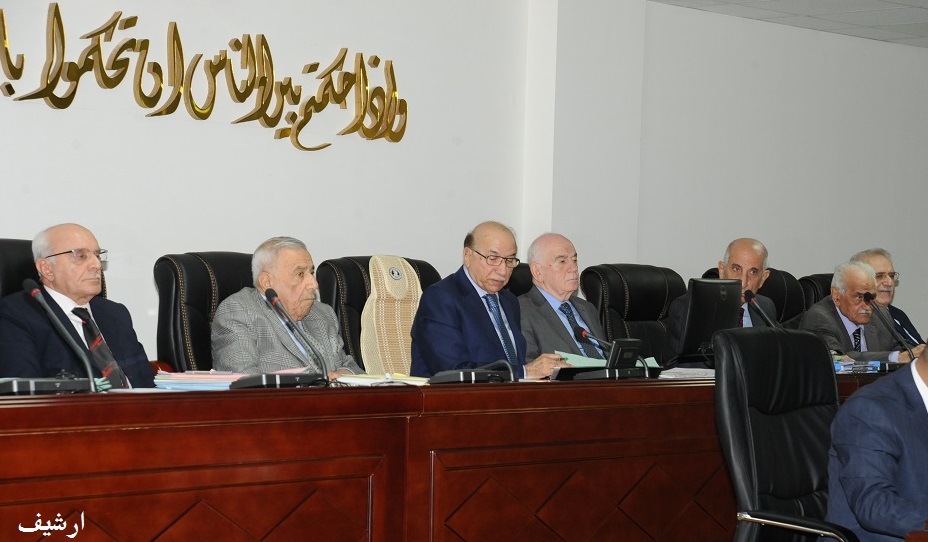
Adjudge with impossibility of those whom suited with a crime against honor or corruption to participate in the elections, even if they were included with amnesty
The Federal Supreme Court ruled that the candidate sentenced by a final judicial decision for a felony or misdemeanor of honor, including cases of financial and administrative corruption, cannot participate in the elections, pointing out that his inclusion in the general amnesty does not negate a characteristic that does not suit the public responsibility to occupy a position in the state.
Ayass Al-Samouk court spokesman said The Federal Supreme Court held its session headed by the president Judge Madhat Al-Mahmoud and the presence of judges and all the members of the court and tried the case of the plaintiff, who disputed the Speaker of the ICR/ being in this capacity."
Al-Samouk continued, `` the plaintiff challenged by his agents the unconstitutionality of the clause (3rd) of the Article (5) of Law No. (14) For 2019 (Law of the First Amendment of the Law of governorates and District Councils Elections) No. (12) For 2018. ''
He pointed out that "the clause which is under the challenge by its unconstitutionality stipulated one of the conditions of the candidate for membership of these councils and its text is ((he shall be a good conduct and is not convicted of a felony or misdemeanor of honor, including cases of administrative and financial corruption by virtue of a judicial decision whether or not included by amnesty or not)).
He pointed out that "the plaintiff based his claim on the constitutional articles that he mentioned in his case petition, claiming that the clause (3rd) of the article (5) from the aforementioned law violated the constitutional articles."
He explained that "the Federal Supreme Court found from studying the clause which is the subject of the challenge that it is a restriction on those who hold public jobs in the state whether been elected or appointed called by the nature of these tasks."
He added that "the court affirmed that this restriction does not contradict the constitutional articles which mentioned by the plaintiff in his case petition in which adequate protection of the right of the state and society to assume responsibility for those who has good conduct and were not sentenced by misdemeanor, including crimes of financial and administrative corruption, The issued judgment became final according to it, whether or not included by pardon,
He added that "the Federal Supreme Court argued that the inclusion of the pardon does not negate the status of it does not suit the public responsibility to occupy a position in the state."
He explained that "the court confirmed that those who claim not to be included by this restriction and included outside, because what was sentenced was not an offense of honor, he can review the legal ways to challenge not to include."
He went on to "the Federal Supreme Court found that the plaintiff's case is lacking of constitutional and legal substantiation and outside the jurisdiction of the court and based on the foregoing the court decided to reject unanimously."




